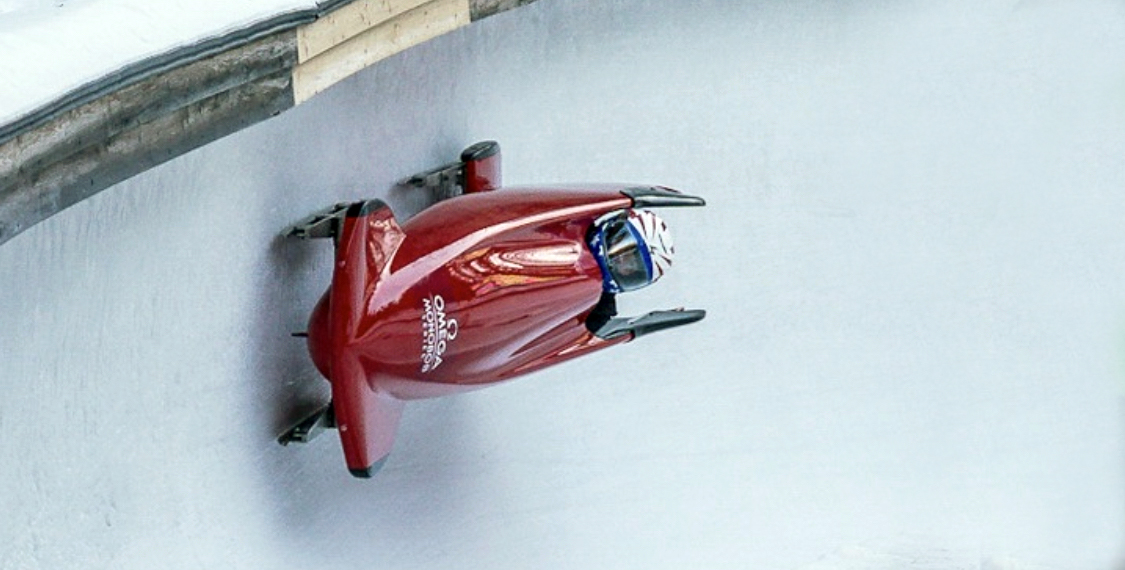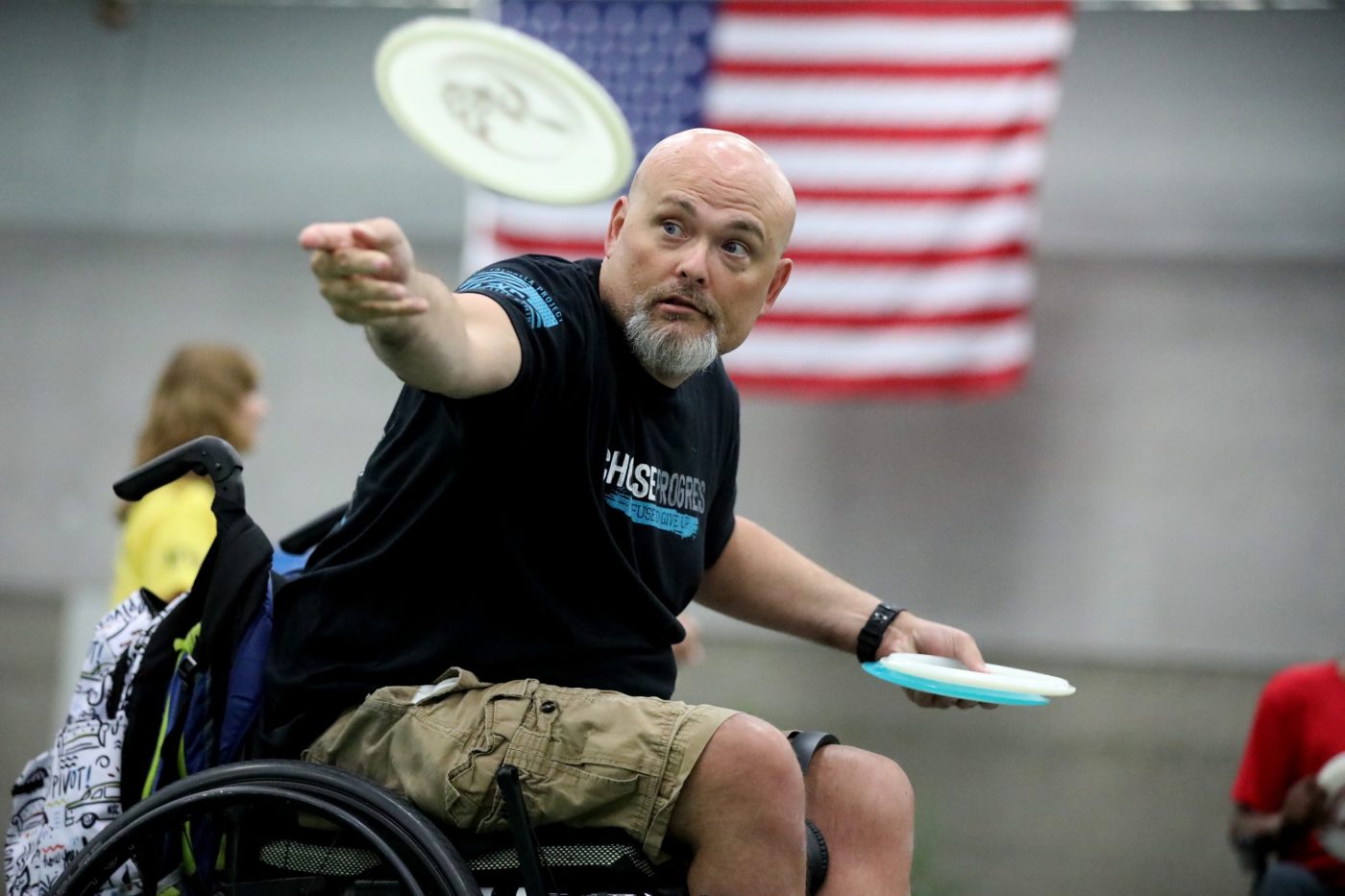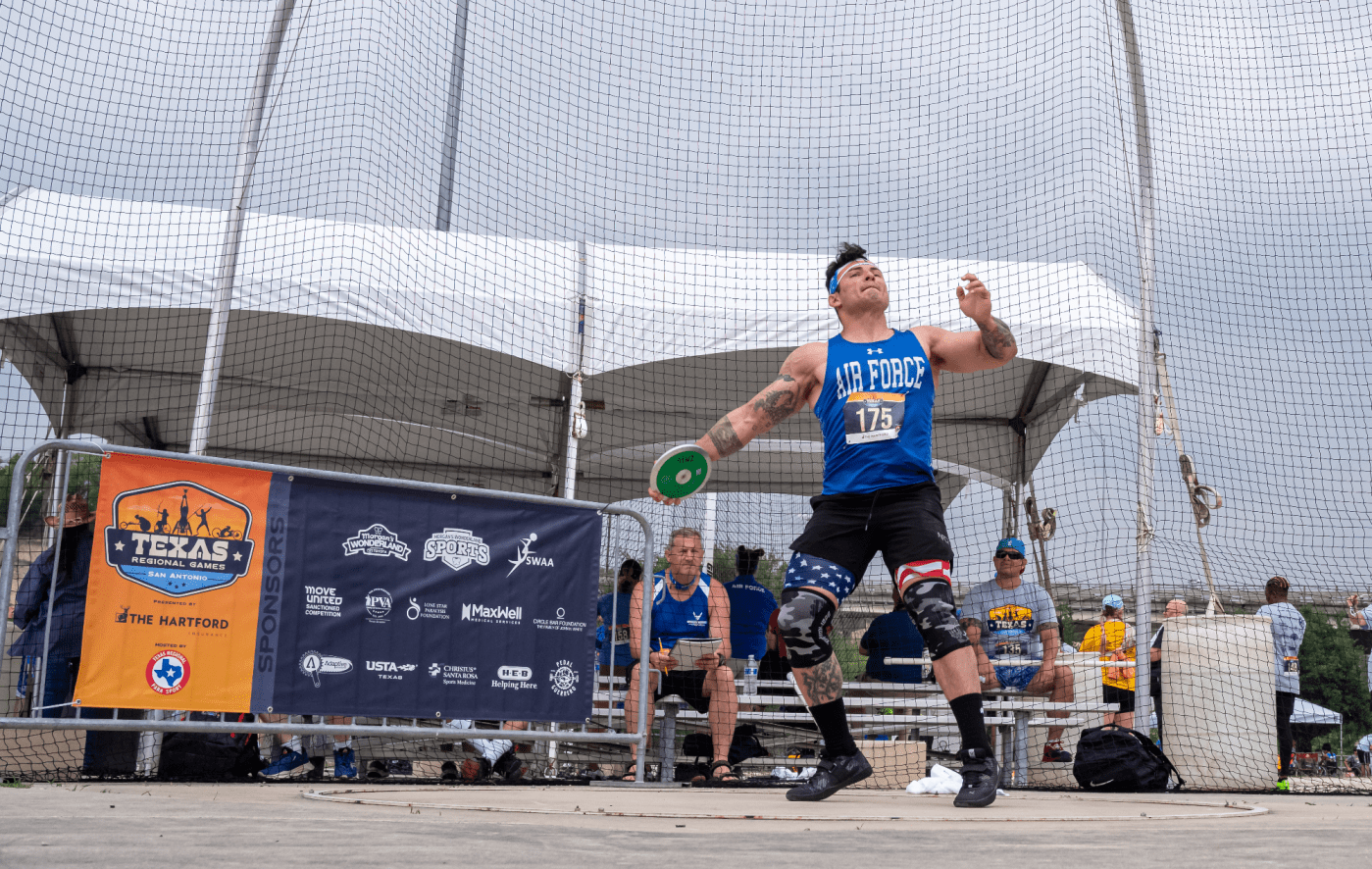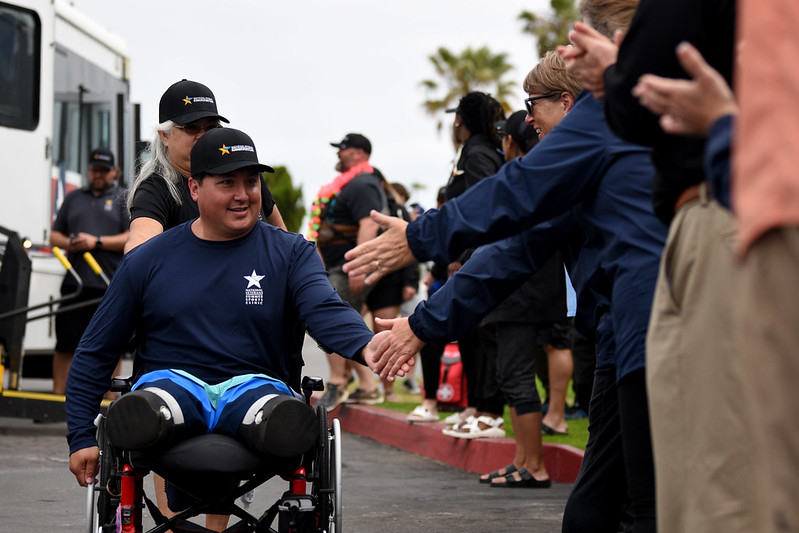Twists and turns, bumps and bruises, the occasional crash. For many Veterans, the sport of bobsled is a metaphor for life.
Army Veteran Will Castillo’s story began on April 27, 2007. Castillo – then a staff sergeant – was riding along with Spc. Eddie Tamez and Pfc. David Kirkpatrick on patrol in Fallujah, Iraq, when their Humvee struck an improvised explosive device (IED).
The aftermath was a blur. When Castillo awoke, his sister and mother were by his bedside.
“I could hardly talk I was so heavily medicated,” he said. “I was just trying to survive.”
He was 27 years old, and his injuries had cost him his left leg – but he was alive. Tamez and Kirkpatrick did not survive.
Castillo spent the next two years at Walter Reed Army Medical Center recovering and learning to navigate life with one leg. Visitors came by to give him hugs, handshakes and well wishes. The Director of Homeland Security even offered him a job.
In 2009, he was discharged from Walter Reed, and he moved to Orlando to start anew. But life wasn’t good.
“I had survivor’s guilt. I thought about my guys, what had I done wrong. I was depressed. I was suicidal.”
His marriage crumbled, and his mental health deteriorated.
“All the struggles I was going through. I was Baker Acted,” Castillo said, referring to the Florida law that allows for emergency or involuntary commitment for mental health treatment.
He recovered, remarried and again tried to rebuild. But his struggles continued and, in 2015, he divorced for the second time.
In 2017, Castillo returned to Walter Reed for a follow-up operation to his injured leg. His life took an unexpected turn.
“A friend of mine was there and said to me, ‘You should try bobsled.’ I was extremely overweight, but I figured it would be something to keep me busy.”

Army Veteran Will Castillo displays his gold medal from the Empire State Winter Games para bobsled competition. Castillo is one of the world’s top ranked sledders in the sport. (Courtesy photo)
That conversation led Castillo to a para-bobsled and para-skeleton camp for Veterans at Lake Placid Olympic Sports Complex in upstate New York.
His first attempt was skeleton, a sport where the slider rides face down and head-first on a small sled down an ice track at speeds of more than 80 mph.
“It was terrifying,” he said. “I was 260 pounds. I was crashing into the walls. Those little sleds are not made for that weight.”
After a year at skeleton, he switched to monobob, a one-person bobsled that looks like a rocket on ice skates. He knew instantly he’d found his sport.
“Everything just slowed down, I was able to see everything. There was danger, but I did it. There’s no disability on that ice. For that one minute, it’s awesome.”
Veterans like Castillo are dominating the sport in the United States, thanks in large part to camps like the ones at Lake Placid. From 2015 to 2020, VA’s Adaptive Sports Grant had funded 16 camps for Veterans at Lake Placid and Park City, Utah, the only two bobsled track sites in the country.
Thanks to the VA grant, Veterans’ only cost to attend is travel to and from the camp.
“(The grant) is huge for us because it allows us to do the camps,” said Kim Seevers, USA Bobsled and Skeleton Para-Sport Development Committee chair.
Camps are typically five days and allow Veterans to stay on site at the Olympic Training Center. Once there, Veterans receive training from strength and conditioning experts, physical therapists and sports psychologists. After completing initial training, they head to the ice track where they learn the fundamentals of para-bobsled and skeleton.
“With bobsled, things are pretty expensive,” Seevers said. “To get the ice time and the bobsleds is a lot. Each of the bobsleds is $20,000. For us to rent the sleds and pay for track time is typically between $5,500 and $8,000, dependent on the number of Veterans sliding.”
Veterans among world’s elite
At the 2019-2020 Para World Cup competition, all five U.S. team members were Veterans. They finished the season ranked 7th, 16th, 18th, 21st and 24th in the world.
Castillo is the number one ranked para-bobsledder in the U.S. and will pilot USA 1, the name of the monobob designated for Team USA’s top slider, in upcoming competitions. It’s an opportunity he humbly accepts.
“It all starts with VA and those camps,” he said. “Then you really have to put the work in and you start seeing the rewards. You get to put that uniform on again (and) represent the USA with integrity and honor.”
Para bobsled and para skeleton are relatively new sports with the first international competitions having taken place in 2013. Still, neither sport is recognized as Paralympic eligible. But that may soon be changing.
In August, the International Paralympic Committee is voting on whether to include it into the Paralympic Games in 2026.
Competition is gender neutral
Marine Corps and Army Veteran Sarah Frazier-Kim is hoping her success can help the sport and other Veterans advance to the pinnacle of international competition.

Marine Corps and Army Veteran Sarah Frazier-Kim is one of the United States’ top para bobsledders. Athletes are hoping the sport will become one of the newest Paralympic competitions. (Courtesy photo)
“I always liked winter sports, even though I don’t like the cold,” she said. “I’d watch the Olympics on TV and bobsled and skeleton were sports I always loved.”
In 1995, Frazier-Kim was injured in a training accident in the Marine Corps. In January 2019, after years of complications, pain and suffering, doctors at Ft. Sam Houston amputated her right leg above the knee.
“(My doctor) asked me what I wanted to do. I told him I want to make Team USA. And he said, ‘We’ll get you there.’”
In November 2018, in anticipation of her surgery, she was sent for physical therapy to get her into shape.
“I changed from a mom body to an athletic body.”
After the surgery, she continued physical therapy with her therapist, an ex-football player.
“He worked me out like I was on the football team. I was working out like a beast, doing balancing exercises, strength training, and someone there knew Kim Seevers.”
Like Castillo, Frazier-Kim says she was invited to one of the camps at Lake Placid. She completed her first camp in October 2019.
In less than a year, Frazier-Kim has become one of the top female sliders in the sport. Para bobsled is gender neutral with men and women competing together.
“There’s nothing like it. It’s the most exhilarating feeling. The excitement, the adrenaline rush, you’re going so fast. It’s crazy,” she said.
But her rapid success did not come without bumps and bruises along the way.
“Your legs and shoulders are hitting the sides of the bobsled. It’s not for everyone,” she said. “You have to think about every curve while you’re being slapped back and forth.”
Despite the challenges, she says her goal now is simple – to be the best.
“I plan on doing it for as long as I can – as long as my body can take it. And being a Marine, I don’t know any other way.”
For a list of recipient organizations and more information about VA’s Adaptive Sports Grant, visit vaww.blogstest.va.gov/nvspse/grant-program/.
Topics in this story
More Stories
Veterans and volunteers interested in registering online for the 43rd National Veterans Wheelchair Games (NVWG) can do so now through April 5, 2024.
Last year, Move United hosted 26 adaptive sports competitions in 22 states for 1,537 individual athletes. This year, that number is increasing to 35 events in 24 states for even more Veteran athletes.
Registration for the National Veterans Summer Sports Clinic (NVSSC) opens on Dec. 1, 2023, and runs through March 1, 2024. The 2024 NVSSC will take place August 25-30 in San Diego, California, offering an extended opportunity for Veterans to partake in adaptive sports.






